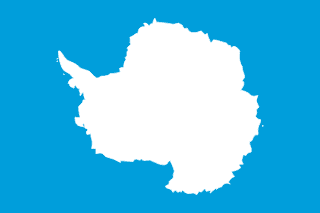Antarctica - Government

Based on the etymolgy of Antarctica, it was name derived from two Greek words, anti and arktikos, meaning "opposite to the Arctic" or "opposite to the north". The Government system in this country is the the Antarctic Treaty and its follow-on agreements govern the use of Antarctica, ensuring it is used only for peaceful purposes and scientific research; signed in 1959 and in force since 1961, the original Treaty bans military activity, weapons testing, and nuclear waste disposal, while allowing military personnel to assist with research or other peaceful efforts; it promotes international cooperation in science, guarantees the free exchange of research, and freezes territorial claims; the Treaty covers all land and ice south of 60° south latitude, and allows Treaty nations to inspect any station or facility
decisions are made by consensus at annual meetings, and member countries implement these decisions through their national laws (see “Legal system”); additional agreements have strengthened the Treaty system, including conventions to protect seals (1972) and other marine life (1980), as well as an environmental protocol (1991, took effect in 1998); the protocol bans mining and includes strict rules on environmental impact, waste, pollution, wildlife, and protected areas; as of December 2024, there are 58 member nations: 29 consultative members, including the 7 claimant countries (Argentina, Australia, Chile, France, New Zealand, Norway, and the UK), and 29 non-consultative members; a permanent Antarctic Treaty Secretariat, established in 2004 in Buenos Aires, supports the system type and the different Administrative divisions includes:
decisions are made by consensus at annual meetings, and member countries implement these decisions through their national laws (see “Legal system”); additional agreements have strengthened the Treaty system, including conventions to protect seals (1972) and other marine life (1980), as well as an environmental protocol (1991, took effect in 1998); the protocol bans mining and includes strict rules on environmental impact, waste, pollution, wildlife, and protected areas; as of December 2024, there are 58 member nations: 29 consultative members, including the 7 claimant countries (Argentina, Australia, Chile, France, New Zealand, Norway, and the UK), and 29 non-consultative members; a permanent Antarctic Treaty Secretariat, established in 2004 in Buenos Aires, supports the system type and the different Administrative divisions includes:
National symbols
.
The flag
The National flag of Antarctica has .
Info
The National Anthem
| Title | |
|---|---|
| Lyric/music |
Info
More about the government of Antarctica
| Date of Independence | |
|---|---|
| National holiday | |
| Legal system | Antarctica is administered through annual Antarctic Treaty Consultative Meetings that include member nations, observer groups, and experts; decisions are made by consensus and enforced by each country through its own laws, applying to their citizens and operations in the region south of 60° south latitude, including all ice shelves and islands; in the US, the Antarctic Conservation Act prohibits actions like harming native wildlife, introducing non-native species, polluting, or entering protected areas without authorization; the US National Science Foundation and Department of Justice enforce these rules; US expeditions must also notify the Office of Ocean and Polar Affairs at the US Department of State, which informs other Treaty nations, as required under Public Law 95-541 |
| International law organization participation |
Key Political parties and their leaders in Antarctica
Info
International organization participation
All Important Facts about Antarctica
Want to know more about Antarctica? Check all different factbooks for Antarctica below.
-
 Antarctica Factbook
Antarctica Factbook
-
 The Economy of Antarctica
The Economy of Antarctica
-
 Learn about the Government of Antarctica
Learn about the Government of Antarctica
-
 Communication in Antarctica
Communication in Antarctica
-
 Popular Universities in Antarctica
Popular Universities in Antarctica
-
 Enerny in Antarctica
Enerny in Antarctica
-
 Transport in Antarctica
Transport in Antarctica
-
 The Geography and society of Antarctica
The Geography and society of Antarctica
-
 The Environment of Antarctica
The Environment of Antarctica
-
 Military and security in Antarctica
Military and security in Antarctica